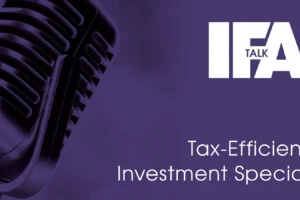Social media has become the go-to place for quick financial fixes, but new research reveals just how dangerous debt advice on social media can be.
A joint study from credit management company Lowell and free debt advice provider Money Wellness found that almost two-thirds (64.22%) of debt advice circulating on TikTok, Facebook, and Reddit is misleading, while an overwhelming 98.27% is unreliable.
With over 10.1 million people in the UK currently over-indebted (FCA Credit & Loans survey), many turn to online communities for support. But according to the study, the loudest voices in debt advice on social media can leave vulnerable people at risk of worsening their financial difficulties.
Experts brand 64% of debt advice on social media as misleading
Misleading debt advice doesn’t stay hidden in small corners of the internet, it spreads quickly across huge online communities. UK finance subreddits attract up to 1.8 million members, Facebook support groups draw in tens of thousands, and TikTok hashtags like #debtfree appears in hundreds of thousands of posts. With audiences this large and platforms that reward engagement over accuracy, even a single unverified tip can reach millions in minutes.
The research found that almost two thirds (64.22%) of all the debt advice analysed fell into this “misleading” category. That means the majority of people turning to online communities for support are at risk of being guided by information that could worsen their financial difficulties rather than help resolve them.
Two-thirds of content push blanket strategies, a quarter promote products
When it came to practical strategies for getting out of debt, 64.22% of the advice offered was overly generic, lacking any consideration for individual circumstances. These strategies could look like someone suggesting they consolidate loans to one 0% credit card, “just budgeting better,” or seek a financial service such as an IVA or bankruptcy.
Almost two thirds of advice (62.79%) gave real ways to deal with debt without showing the potential downsides, costs, or long-term consequences. For example, although many people advised an IVA as a way to “wipe debt”, it failed to mention that those who took this route may end up paying added fees and negatively affect their credit score.
28.75% of advice promised unrealistic outcomes such as specific but extreme timeframes (“in 7 days,” “in one month”) or used language such as “guaranteed” or “no matter your situation”. This kind of wording gives people false hope that debt problems can be solved quickly and easily, which can delay them from seeking realistic solutions.
Worryingly, the study also discovered that a lot of debt advice had a commercial angle as 23.96% promoted a specific product or service from recommending specific 0% credit card accounts to certain YouTubers. Some advice even went as far as to promote their own services as unofficial “financial advisors” promising to “clear debts”. Not all of these services were recommended with ill intent as many simply reflected what had worked for others.
98.27% of debt advice social media is branded as unreliable
A big problem with debt advice on social media is the source. Anyone can post tips on social media with no credentials or experience. “Debt-fluencers” often share personal stories or viral tips, not expert guidance, which lets harmful advice spread fast.
98.27% of debt advice was given by someone with no visible credentials or experience. This meant that their advice couldn’t be verified and therefore could be wholly inaccurate. The study also found that 93.99% of debt advice lacked a financial disclaimer, while a staggering 93.99% of debt-related content cites no third-party sources, meaning audiences may treat anecdotal or personal experiences as universally applicable or expert-backed.
Matthew Sheeran, Debt Advice Specialist at Money Wellness, comments on the findings of the study:
“It’s alarming, but sadly not surprising. Online platforms are flooded with quick-fix solutions that oversimplify complex financial issues. We see firsthand how this misinformation can push people further into debt. It reinforces why regulated, professional advice is so crucial. Debt is complex, so a one-size-fits-all approach simply doesn’t work.
These platforms reward content that’s fast, catchy and easy to share. This can come at the expense of accuracy. Debt advice that promises instant solutions or dramatic results gets more likes and shares than measured, realistic guidance. Unfortunately, this means people see the most sensational tips first, rather than a more balanced viewpoint. Also, not everyone is aware that free debt advice is available and so this may be a driver for people turning to social media for help.”
Bad debt advice can be devastating. It’s like being scammed. People often feel embarrassed about taking bad advice, and this can prevent them from seeking professional help—which only deepens their financial struggles.”
To read more about the report, visit Lowell.















